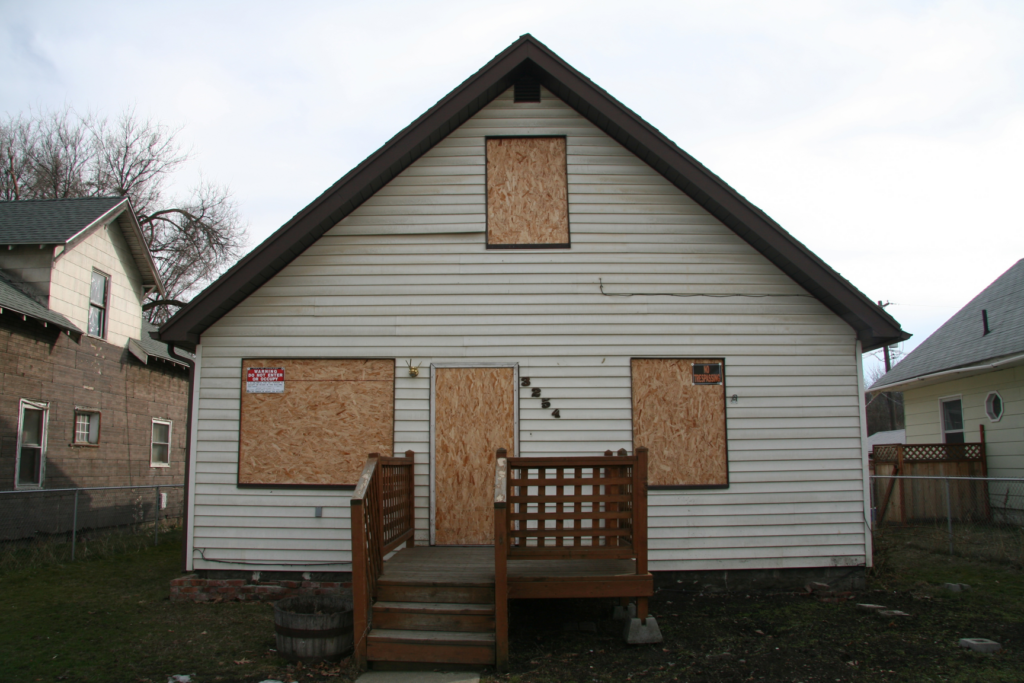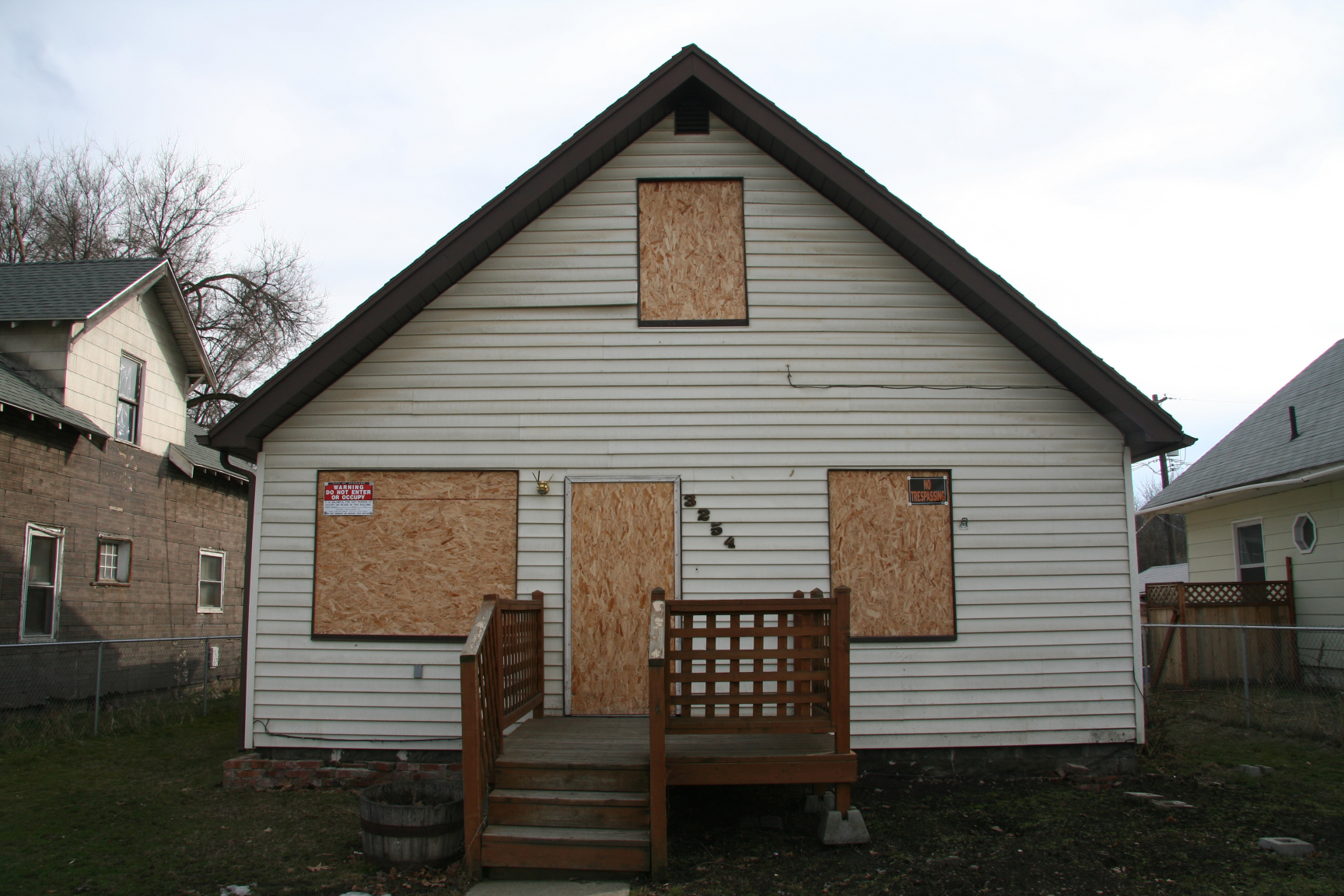House condemnation in Ohio is a critical issue that impacts homeowners, tenants, and communities at large. It signifies a property is deemed unsafe or unfit for living due to various factors that compromise its structure, safety, and livability. This comprehensive guide aims to demystify the legal, structural, and health-related grounds for house condemnation in Ohio, providing valuable insights for property owners to navigate and mitigate these challenges effectively.

Understanding Ohio’s Legal Framework for House Condemnation
Ohio’s approach to maintaining safe and habitable housing is governed by a robust legal framework that includes the Ohio Revised Code, local building codes, and health department regulations. These laws empower local authorities to inspect properties and enforce standards that ensure the safety and health of occupants. Critical sections of the Ohio Revised Code, alongside specific local ordinances, outline the requirements and processes for condemning properties that fail to meet these standards.
Primary Grounds for House Condemnation in Ohio
- Structural Issues: Ohio properties must maintain structural integrity to be deemed safe. Issues like severe foundation damage, roof collapse risks, and deterioration of load-bearing walls are significant red flags that can lead to condemnation. The Ohio Building Code provides detailed standards for structural safety, highlighting the importance of regular inspections and maintenance.
- Health Hazards: Properties posing severe health risks due to mold, asbestos, lead, or pest infestations can also be condemned. Ohio’s health department guidelines stipulate the conditions under which a property is considered hazardous, emphasizing the necessity for immediate remediation to protect occupants’ health.
- Non-Compliance with Building Codes: Adherence to local building codes is crucial. Ohio properties found lacking essential safety features, such as smoke detectors or proper egress windows, or those with unauthorized modifications, face the risk of condemnation. This underscores the importance of obtaining necessary permits and adhering to local regulations for all construction and renovation projects.
- Abandonment: Abandoned properties not only detract from community aesthetics but also pose significant safety and health risks. Criteria for condemning such properties include evidence of vacancy, deterioration, and nuisance to the community, highlighting the need for property owners to maintain or properly secure unused properties.
The Condemnation Process: Steps and Legal Implications

The condemnation process in Ohio typically involves an initial inspection, notification of violations, and a given timeframe for the property owner to address these issues. Failure to comply can lead to legal proceedings and official condemnation, emphasizing the importance of proactive engagement with local authorities and, when necessary, legal representation to navigate these challenges.
Proactive Measures to Avoid Condemnation
- Regular Maintenance and Inspections: Regular upkeep and professional inspections can identify and mitigate issues before they escalate to the point of condemnation, underscoring the value of preventive maintenance.
- Engagement with Local Authorities: Building a positive relationship with local building and health departments can provide early warnings and guidance on compliance, illustrating the benefits of open communication and collaboration with local authorities.
- Utilizing Technology: Smart home technologies and property management software can help monitor property conditions, offering a modern approach to maintaining safety and compliance.
- Financial Planning and Resources: Exploring financial aid, grants, and insurance options can alleviate the cost burden of necessary improvements, highlighting the need for financial savvy and resourcefulness among property owners.
Community Engagement and Policy Advocacy
Engaging in community initiatives and advocating for supportive housing policies can drive improvements in housing standards and prevent condemnation. Collective action, community-based maintenance programs, and participation in policy development can contribute to a safer, healthier housing environment across Ohio.
A Call to Action for Ohio Property Owners
Preventing house condemnation in Ohio requires a multifaceted approach that combines legal compliance, structural and health safety, proactive maintenance, and community engagement. Property owners play a crucial role in this process, and by taking informed, proactive steps, they can ensure their properties remain safe, habitable, and free from the risk of condemnation. This guide serves as a resource for understanding the grounds for house condemnation in Ohio and outlines practical strategies for property owners to protect their investments and contribute positively to their communities.
Many home owners simply opt to sell their house for cash to avoid dealing with the stress of house condemnation. EZ Sell Homebuyers, is Google’s Top ranking Home Cash Buying team in Ohio with the highest number of Google reviews. We buy houses in all Ohio cities, (Dayton, Columbus, Cincinnati, Cleveland, Toledo, and Akron). Whether you are trying to avoid foreclosure, inherited a property you do not want, dealing with a divorce, or are fed up being a landlord dealing with tenants, we can help. If you need to sell your house in Ohio fast, we offer cash for homes in Ohio!
FAQ for “What Are the Grounds for House Condemnation in Ohio?”
1. What is house condemnation? House condemnation occurs when a property is deemed unsafe or unfit for living due to factors compromising its structure, safety, and livability. This decision is typically made by local authorities based on specific legal and health standards.
2. What legal framework governs house condemnation in Ohio? Ohio’s approach is underpinned by the Ohio Revised Code, local building codes, and health department regulations. These laws enable local authorities to inspect properties and enforce standards for occupant safety and health.
3. What are the primary grounds for condemning a property in Ohio?
- Structural Issues: Properties must maintain structural integrity, with concerns such as foundation damage or deterioration of load-bearing walls being major red flags.
- Health Hazards: Risks posed by mold, asbestos, lead, or pest infestations can lead to condemnation.
- Non-Compliance with Building Codes: Lack of essential safety features or unauthorized modifications can result in condemnation.
- Abandonment: Properties that are vacant and deteriorating can be condemned for being a nuisance to the community.
4. How does the condemnation process work in Ohio? The process typically involves an initial inspection, notification of violations to the property owner, and a timeframe to address these issues. Failure to comply may lead to legal proceedings and official condemnation.
5. Can house condemnation be avoided? Yes, through regular maintenance, adherence to building codes, engagement with local authorities, and utilizing technology for property management. Financial planning and exploring resources like grants can also help manage the cost of necessary improvements.
6. What should property owners in Ohio do if they face potential condemnation? Owners should proactively address any identified issues, engage with local authorities for guidance and compliance, and consider legal representation if necessary. Additionally, they can explore selling their property to avoid the stress and financial burden of condemnation.
7. Are there any resources for Ohio property owners to help avoid condemnation? Yes, property owners can seek advice from local building and health departments, utilize property management software, and explore financial aid options. Engaging with community initiatives and advocating for supportive housing policies are also beneficial strategies.

